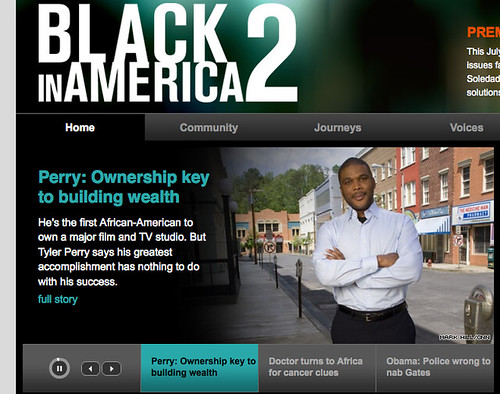
The NYT’s Neil Genzlinger on CNN’s “Black in America 2:”
So come to this program for some heartening examples of people who are responsible for relatively small efforts against big problems. But expect only one revelation: that the “Black in America” concept needs to be put out of its misery. When poor urban children are crammed under the same umbrella as rich debutantes, as they are here, it’s a good sign that you have an artificial construct. Being black, or anything else, in America is far more complicated than one demographic characteristic.
This was basically our issue with the first installment. How do you cover “blackness” — broad, vaguely defined “blackness”? It would be impossible to do well, which is why I’m so surprised that people are so disappointed with it. What exactly were they expecting? (CNN’s planned “Latinos in America” doc will almost certainly have the same problems. )
Does anyone outside of the groups at issue even watch these? Would you trust any conclusions about Group X that they gleaned from it? Should said viewer even be attempting to draw any conclusions?








